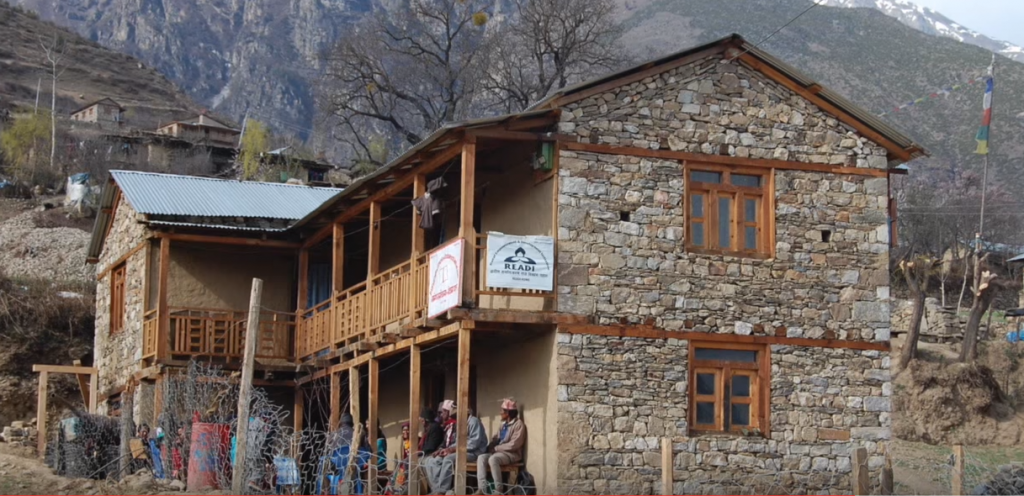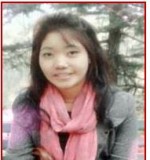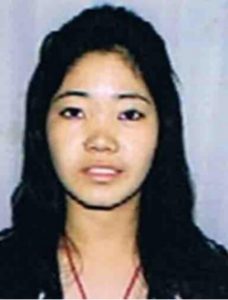Project #297 – 2010-2023
One of the major projects supported by TRAS is the Voice of Children (VOC) project. VOC is run by AMAN (Facebook) and Vimarsh (Facebook), two Indian non-profits in the Almora and Nainital districts of northern India.
AMAN and Vimarsh are currently working in 12 rural villages, all of which are anywhere between 2km to 27km from the nearest road. These villages face many challenges to access education and health services. The isolation of these villages makes it difficult to attract qualified teachers and staff, so many village schools are forced to close. Even if children are able to get a primary school education, going to secondary school is often impossible as they can be too far away. Health services are often minimal or nonexistent, so many villagers also suffer from health problems.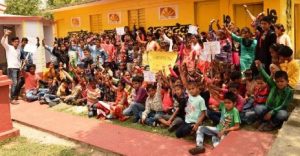
In addition to these issues, women and girls face even more barriers to getting an education. Since there are few opportunities for income generation in the villages, men often leave to find work in cities. This means that women and girls are left to do all the work at home. Their work is very physically demanding, and leaves little time for getting an education or taking proper care of themselves. The literacy rate of women in these villages is much lower than that of men, and many women and girls develop health problems related to their labour.
Faced with these challenges, the goal of Voice of Children is to improve the lives of the people in the villages where it works by promoting education, keeping kids in school, and ensuring access to basic health care.
VOC provides a range of initiatives, loosely grouped into three categories: direct education to children; resource centres to support and complement education; and capacity-building initiatives to make sure that villagers know their rights, especially children and women.
Education:
In rural villages, education is often under-valued, and families would prefer that their children remain at home to work. Furthermore, the barriers to education including cost and distance are major deterrents. VOC aims to solve these issues with their Education Support Centres, Tuition Classes, and Computer Literacy Programs.
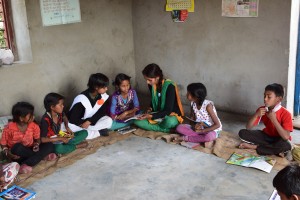
The Education Support Centres are geared towards low-income families that are often not given the opportunity to excel in school. Five centres are now in operation with 178 students regularly attending (79 male, 99 female). These centres provide educational extra-curricular activities that foster an appreciation and love for education, motivating the students to continue their studies.
The Tuition Classes provide a more direct and applicable education for the children. These classes focus on local issues and teach subjects that are more directly relevant to the students. These include general knowledge, health education, and environmental studies. There are currently five tuition centres with 114 children (55 male, 59 female).
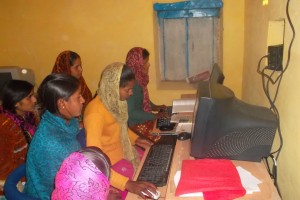
Computer Literacy Programs are increasingly relevant and important for all students. There are currently two centres with 59 children where they are taught skills including how to use the internet, MS Office, and typing skills in both English and Hindi.
Resource Centres:
The different resource centres are designed to assist students with their studies, as well as have a place for women to learn about their rights. These include the Special Coaching Centre, the Women Counseling and Resource Centres, and the Fellowship program.
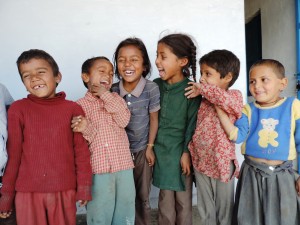
The Special Coaching Centre, located in Govinpur, links 29 students from 9 nearby villages. The students, (from classes 9-12) are provided with coaching and tutoring to aid them in their studies. The coaching includes sciences, math, and English. This service is currently provided by Aman, while Vimarsh looks to begin its own centre in the near future.
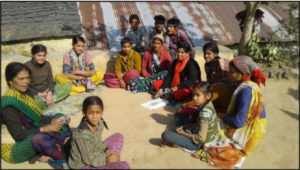
The Women Counseling and Resource centres are put in place to educate and support women with regards to protection from violence, health issues, and ways of legal recourse. These groups of 161 women have achieved remarkable success including getting the Ministry of Natural Gas and Petroleum to implement LPG connections to women in rural, low-income areas. This has greatly reduced the work required to cook. Two families began the Certificate of Marriage registry, and the Domicile and Caste Certificate. These give both women and children easier access to social security, including some schools that do not accept students without a legal domicile status.
Lastly, the Fellowship program supports 46 children that were deemed to be at risk of dropping out of school due to the financial burden. These children were given school bags, notebooks syllabus books and shoes.
TRAS now partners with Voice of Children through the TRAS Scholarship Fund to provide three-year scholarships to students entering university or other institutes of higher learning. TRAS currently provides eight students with these scholarships.
Capacity Building Meetings:
Both AMAN and Vimarsh organise regular meetings to listen to the needs of the communities, and to educate them about their various rights. The three meetings are the Community Mobilization meetings, meetings with Mahila Sangthan, and the Collective meetings.
The Community Mobilization meetings are directed towards local children. The meetings educate them about their rights, including child’s rights, gender issues and discrimination, personal hygiene, right to education, child labour laws, child help lines, environmental rights, republic day, sustainable development goals, and many more. These meetings have been highly successful with more than 400 children participating.
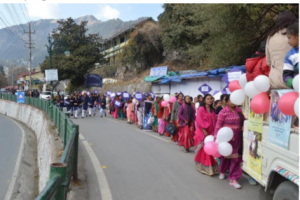
The meetings with Mahila Sangthan are a collaboration that unifies local women to have their voices heard, and to educate them about a variety of topics. The discussions focus on education about gender issues, PCPNDT, local self governance, domestic violence, relevant government programs, water-sharing, and many more. These have also been very successful with over 500 women participating.
Lastly, the Collective meetings bring together both children’s and women’s groups to discuss mutual issues. Most recently they celebrated International Women’s Day and had an an amazing turnout!
Watch this YouTube video to see the amazing people this project has helped.
Read about VOC’s response to the COVID-19 pandemic with the help of TRAS funding.
Read about Hear Their Voices – A Zoom Event March 3, 2021
Voice of Children Report 2021 – 2022
Voice of Children Report 2020 – 2021
Voice of Children Mid-Year Progress Report Nov 2020 – Apr 2021
Voice of Children Report 2019 – 2020
Voice of Children Report 2018 – 2019
Voice of Children Report 2017 – 2018
Voice of Children Interviews
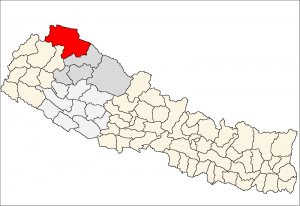
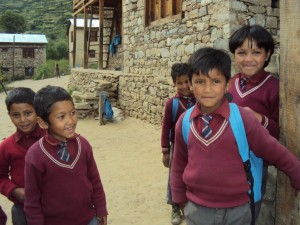
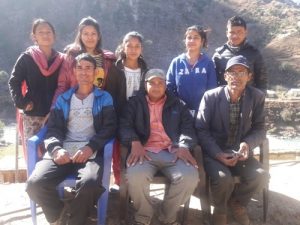
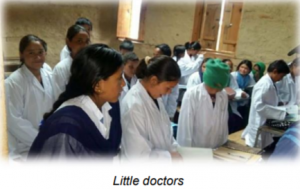 READI Nepal has extended its philosophy of cooperation to many other agencies, both government and private. This includes cooperation with the district health officer, to create the “Little Doctor” program, teaching basic first aid knowledge to the children. Similarly, the recent mayor of Simikot has expressed a great interest in the READI hostel, and plans to continue supporting their goals. READI has achieved more and more each year. We’ve included the major highlights of the 2017/18 annual report in our Spring 2018 Newsletter here.
READI Nepal has extended its philosophy of cooperation to many other agencies, both government and private. This includes cooperation with the district health officer, to create the “Little Doctor” program, teaching basic first aid knowledge to the children. Similarly, the recent mayor of Simikot has expressed a great interest in the READI hostel, and plans to continue supporting their goals. READI has achieved more and more each year. We’ve included the major highlights of the 2017/18 annual report in our Spring 2018 Newsletter here.